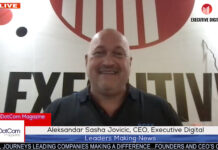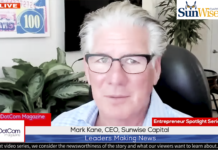In recent years, predictive HR tools powered by artificial intelligence (AI) have revolutionized human resource management, making processes more efficient and data-driven. These AI-based systems help HR professionals predict various workforce trends, including employee performance, attrition, and recruitment success. Predictive HR tools analyze historical data to forecast future trends, enabling HR teams to make proactive, informed decisions. As businesses strive to enhance their workforce management strategies, understanding how predictive HR tools work and the profound impact they have on organizational success is more critical than ever. This article will dive into the top 10 facts you must understand about AI in predictive HR tools, outlining their significance, benefits, and future prospects.
1. What Are Predictive HR Tools?
Predictive HR tools are AI-powered applications designed to help HR professionals forecast future trends based on historical data. These tools analyze vast amounts of employee data, such as performance reviews, training outcomes, and behavioral patterns, to make predictions about areas like turnover rates, employee engagement, and the success of recruitment campaigns.
These tools go beyond simple data analysis by leveraging machine learning algorithms and statistical models to predict future events. By applying predictive analytics, organizations can stay ahead of workforce challenges and create more effective strategies for recruitment, talent development, and retention.
2. How AI Enhances Predictive HR Tools
AI plays a pivotal role in enhancing the capabilities of predictive HR tools. Through machine learning, AI systems can automatically adjust and improve predictions based on new data, ensuring that predictions become more accurate over time. Unlike traditional methods, which rely on manual data entry and basic analysis, AI-driven predictive tools learn from patterns in employee behavior, training effectiveness, and performance metrics.
For example, if an employee consistently underperforms after specific training, AI-powered tools can flag this as a predictive signal, helping HR managers take proactive measures, such as additional support or a change in training approaches.
3. Predicting Employee Attrition
One of the most significant applications of predictive HR tools is forecasting employee attrition. Employee turnover is costly and disruptive to organizations, making it essential to predict when and why employees are likely to leave. AI-based tools analyze a variety of factors—such as job satisfaction, engagement levels, performance reviews, and external market trends—to identify employees who may be at risk of leaving the company.
By identifying potential flight risks early, HR managers can intervene with personalized retention strategies, such as offering career development opportunities, improving workplace culture, or providing better work-life balance options. This predictive capability helps reduce attrition rates and maintain a stable, engaged workforce.
4. Enhancing Recruitment with Predictive Analytics
Recruitment is another area where predictive HR tools can significantly impact an organization’s success. These tools can predict which candidates are most likely to succeed in a specific role by analyzing historical data from previous employees in similar positions. By reviewing factors such as skills, experience, cultural fit, and performance in previous roles, AI algorithms can suggest the best candidates who are more likely to thrive in the company’s work environment.
This predictive approach makes recruitment more efficient, reducing hiring biases and improving candidate selection. It also ensures that the company is bringing in individuals who will have a long-term positive impact, reducing the risk of turnover and the associated costs of hiring and training new employees.
5. Predictive HR Tools for Performance Management
Predictive HR tools are also invaluable for performance management. By analyzing data from employee evaluations, feedback, and goal-setting outcomes, AI systems can forecast an employee’s future performance and potential for growth. These tools help HR managers identify high-potential employees who could be future leaders and those who may require additional support or training.
Through predictive insights, HR professionals can make data-driven decisions when it comes to promotions, succession planning, and talent development. The result is a more informed, strategic approach to performance management, where decisions are based on data rather than gut feeling or biased judgments.
6. Workforce Planning and Talent Acquisition
Effective workforce planning requires a deep understanding of future talent needs, and predictive HR tools can provide exactly that. By analyzing historical data, these tools can forecast labor demand, predict skill shortages, and highlight potential gaps in the workforce. This allows HR departments to plan recruitment campaigns and talent acquisition strategies ahead of time, ensuring that the company has the right mix of skills to meet future business objectives.
For instance, if an organization is planning for expansion in a new market, predictive tools can identify the specific skills needed in the workforce and help HR managers recruit the right talent proactively, avoiding delays and skills mismatches.
7. Improving Employee Engagement
AI-powered predictive HR tools can also play a key role in enhancing employee engagement. These tools analyze a variety of factors that influence engagement, such as workplace culture, leadership styles, and employee feedback. By identifying patterns that lead to high engagement levels, HR managers can apply this knowledge to create a more engaging work environment.
For example, predictive tools might reveal that employees who are given frequent opportunities for career development and advancement are more engaged and less likely to leave the company. With this insight, HR departments can implement strategies that foster engagement, improving overall employee satisfaction and retention rates.
8. Bias Mitigation in HR Decisions
One of the major benefits of AI in predictive HR tools is its ability to reduce human biases in HR decision-making. Traditional HR processes, such as recruitment and promotions, are often influenced by unconscious biases, which can lead to discriminatory practices and unbalanced workforce diversity. AI-based predictive tools help mitigate these biases by relying on objective data rather than subjective opinions or assumptions.
By analyzing data such as job performance, experience, and qualifications, predictive tools ensure that decisions are based on merit and potential rather than factors like gender, race, or age. This fosters a more inclusive workplace and helps organizations comply with diversity and inclusion initiatives.
9. Cost Efficiency and ROI
The use of predictive HR tools can also result in significant cost savings for organizations. By predicting employee attrition, improving recruitment processes, and enhancing performance management, these tools help HR departments make smarter, more cost-effective decisions. Predictive analytics can reduce turnover, streamline recruitment, and optimize workforce planning, ultimately resulting in a more efficient and cost-effective HR operation.
Furthermore, the insights gained from predictive analytics can be used to justify HR investments and demonstrate return on investment (ROI). Whether it’s through improved retention rates or better employee performance, predictive HR tools provide tangible business value that can be tracked and measured.
10. The Future of Predictive HR Tools
The future of predictive HR tools is bright, with advancements in AI and machine learning continually enhancing their capabilities. As AI systems become more sophisticated, predictive tools will become even more accurate and capable of providing deeper insights into workforce trends. In the future, these tools could predict changes in employee morale, identify emerging leadership potential, or even forecast economic shifts that could impact the workforce.
Additionally, as more organizations adopt AI-based HR tools, there will be a shift towards more personalized, employee-centric HR practices. Predictive analytics will allow companies to tailor employee experiences, development opportunities, and benefits packages to individual needs, fostering a more engaged and productive workforce.
Conclusion
Predictive HR tools powered by AI are revolutionizing the way organizations manage their workforce. From forecasting employee attrition to enhancing recruitment and performance management, these tools offer valuable insights that help HR professionals make more informed decisions. By leveraging predictive analytics, businesses can reduce turnover, improve employee engagement, and optimize their workforce for long-term success.
As AI continues to evolve, the capabilities of predictive HR tools will only grow, enabling HR departments to create smarter, more efficient, and personalized employee experiences. The future of HR is data-driven, and organizations that embrace AI in their HR practices will be better positioned to thrive in an increasingly competitive business landscape.

















